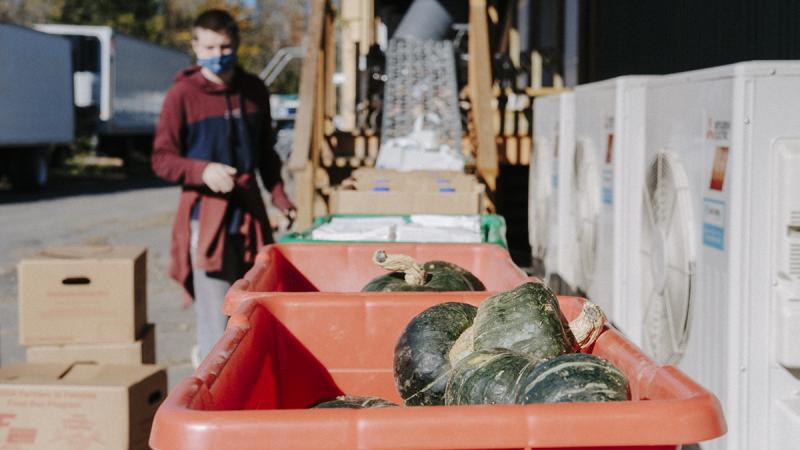Demand for food assistance this winter remained high during the COVID-19 pandemic, but organizers say federal programs prevented hunger from increasing even more. The economic fallout from the pandemic, leading to hunger, continues to disproportionately hit the most vulnerable.
And requests for heating assistance are trending slightly lower than the same time last year, although officials say this could be due to agencies closing to the public during the pandemic, limited access to technology and challenges with the mail system.
The impact of COVID-19 on food insecurity this winter was “mixed,” said Kristen Miale, president of Good Shepherd Food Bank, which coordinates distribution with more than 500 food pantries, soup kitchens, shelters and schools across the state. Although demand remained high, there wasn’t a widespread increase in hunger during the colder months.
During the 12 months leading to the pandemic, Good Shepherd distributed 25.8 million meals, Miale said this week. Between March 2020 and February 2021, the food bank distributed 36 million meals — a 40 percent increase.
Miale told The Maine Monitor in November that the need for food assistance remained 25 percent higher than normal during the summer, which would be a “staggering” increase in a normal year.
Federal stimulus packages, food stamp expansions and unemployment insurance extensions prevented what could have been an even larger impact, Miale said.
“Those interventions by the government were meaningful and really prevented the worst from happening, which is wonderful,” Miale said. “However, the impact of COVID-19 disproportionately affected our most marginalized communities, especially Mainers of color.”
Mainers of color were more likely to get COVID-19 and are likely to work in industries hit hardest by shutdowns. And Miale said many new Mainers had unequal access to government programs or were hesitant to take advantage of the programs because of rhetoric from the Trump administration, which said accepting assistance could threaten their citizenship eligibility.
She added that the demand for food assistance has fluctuated with national news. A spike in need at the start of the pandemic came down during the summer as people started feeling the benefits of the CARES Act. Then, as cases spiked in the fall, so did the need for food assistance. In the first months of this year, with another relief package and the vaccine rollout, Miale said anxiety started to decline, as did demand at food banks.
Good Shepherd is “cautiously hopeful,” Miale said. They’re focused now on targeted outreach to communities that have been hit the hardest. She expects the recovery will take longer than the pandemic and will be unequal. A February survey of partner food banks found that about 13 percent of people were getting food assistance for the first time. That’s high, but it also means the vast majority were people who were hungry before the pandemic, she said.
“Everyone keeps saying they want to go back to normal. Well, normal really wasn’t so great for a lot of people even prior to COVID-19,” Miale said.
Heat insecurity, on the other hand, is trending close to last year, despite concerns there would be a spike in demand for assistance during the winter.
Since August, 42,073 Mainers have applied for heating assistance through MaineHousing, the agency that administers that program. During the same period last year, 42,784 Mainers had applied, spokeswoman Cara Courchesne said this week. There haven’t been any notable surges or drops in demand for heating assistance throughout the pandemic.
“Overall the winter was better than anticipated in terms of what we could provide for people in need,” Courchesne told The Maine Monitor. “So far we’ve received the resources necessary (through federal aid and stimulus packages) to respond to a crisis of unknown duration and impact.”
The housing agency now is focused on helping people pay their rent and utilities, and making sure people who are homeless have a warm and safe place to stay, Courchesne said.



























